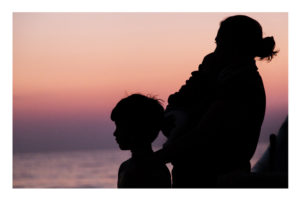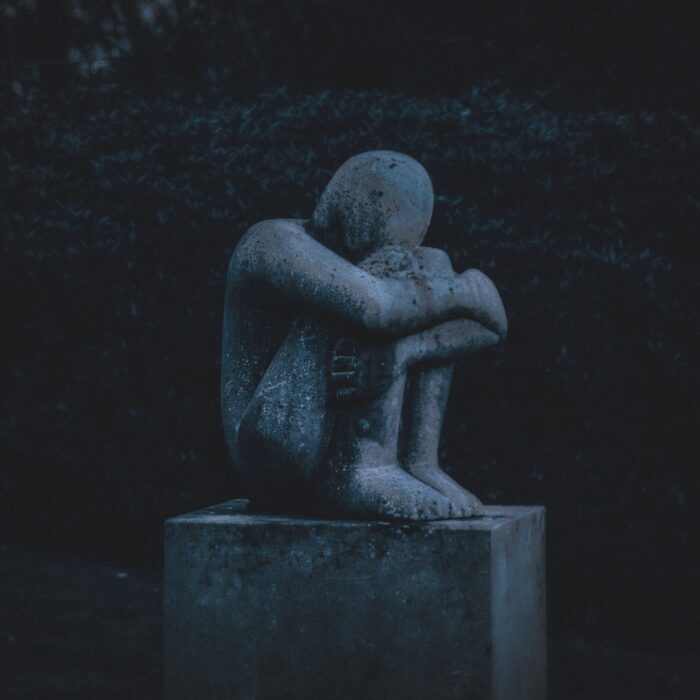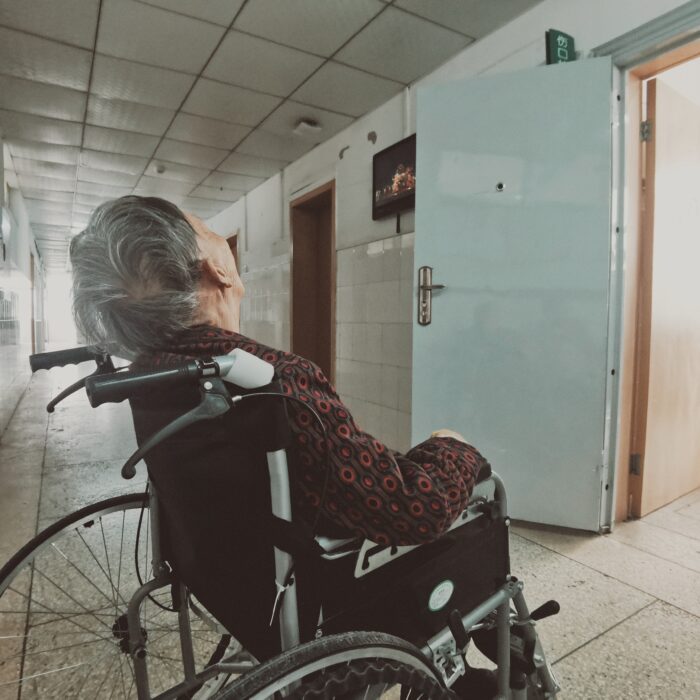You have no items in your cart. Want to get some nice things?
Go shopping The day after my parents got married and Mummy went to live at Papa’s parents’ place for two weeks, two weeks before they boarded the Pushpak express that would chug them for a day and night across the north and middle Indian plains to the city of my birth, the shiny grimy city by the sea, my Mummy went to the bathroom in Papa’s parents house and had a pig’s nose touch her bottom, yes a pig, the snout of a pig, thandi-cold in places and warm in others and toothed with coarse bristles like the edge of a prickly broom, it is a story Mummy likes to tell again and again, and I think she will continue to tell it till time itself comes to an end. The bathroom was a corner of the house that was cordoned off by a silvery tin sheet fitted with a very questionable latch, and behind the ever receptive hole in the ground there was a gap in the wall that opened directly into the gutter on the street, where the pigs lived and frolicked contentedly, and that was where the curious snout came from to investigate my mother’s bum, blowing heated, steamy breaths intimately onto her skin. She screamed and ran mid-stream to the tin-sheet-door, there she leant her head against metal and wept, for she knew her fortunes had fallen steeply (who wouldn’t when they’d been kissed arse-first by a shitty pig), and that life would never be the same again.
The day after my parents got married and Mummy went to live at Papa’s parents’ place for two weeks, two weeks before they boarded the Pushpak express that would chug them for a day and night across the north and middle Indian plains to the city of my birth, the shiny grimy city by the sea, my Mummy went to the bathroom in Papa’s parents house and had a pig’s nose touch her bottom, yes a pig, the snout of a pig, thandi-cold in places and warm in others and toothed with coarse bristles like the edge of a prickly broom, it is a story Mummy likes to tell again and again, and I think she will continue to tell it till time itself comes to an end. The bathroom was a corner of the house that was cordoned off by a silvery tin sheet fitted with a very questionable latch, and behind the ever receptive hole in the ground there was a gap in the wall that opened directly into the gutter on the street, where the pigs lived and frolicked contentedly, and that was where the curious snout came from to investigate my mother’s bum, blowing heated, steamy breaths intimately onto her skin. She screamed and ran mid-stream to the tin-sheet-door, there she leant her head against metal and wept, for she knew her fortunes had fallen steeply (who wouldn’t when they’d been kissed arse-first by a shitty pig), and that life would never be the same again.
The bathroom was finer by the time I got old enough to notice and remember it, with a happily flushing toilet and no wall gaps or snuffling pig snouts, but the gutters in the refugee colony still remained open, and here the sooar pigs too remained. I remember once being caught out in the rain and sheltering under a measly, ineffectual awning across from my grandparents’ place, Shoni, Mummy and I stood there and watched the pigs stand around and grunt in the thick falling rain, they were either too stupid or too lazy to look for shelter, or maybe they just really, really liked the rain. They simply stood there in the gutters that flowed faster and faster and churned out old stinking rubbish and scum that had stuck and festered over the summer months and was now being pushed and pulled and moved like a storm by the first monsoon falls, the waters rushed grey and brown past the gently grunting, blinking islands that were the pigs, and I watched in amazement as the rainwater ran down their stiffened-hair backs and there appeared under their grey exteriors patches of the softest baby pink, look Mummy, look, the pigs are actually pink, but she didn’t want to look or she looked but didn’t see, she was grumbling under her breath I can’t wait to get out of this godforsaken place, what were my parents thinking .
My father and his brothers and sisters were born and grew up in that refugee colony, crouched on the edge of a royal, Nawabi city. Now the city has grown like a crazed modern monster and sucked the colony right into its heaving middle, the people who live there have gone from refugees to firmly finding their feet, and the colony itself has solidified from tin-sheet hutments into proud pukka houses and is dissected by tarred roads, roads as wide as thick ribbons and pimpled with potholes and cows and people and shit. Stranded cars honk but no one, neither cow nor dog nor human, moves out of the way till they feel a fender or bumper flush against the back of their legs, then there is a horrific squealing and shouting and mobs and at times hot bullets fly in the air, that is how the city goes and goes. The Nawabs are out of style but their buildings still stand, no longer so proud, painted in filth and piss and masticated betel, there are skyscraper statues of those who were once downtrodden and now crush others under their feet, they smile stoned defiance at the dead river that has choked on the city’s bad habits and shit.
Every year, when school broke for the summer, we left our city by the sea and went north, even a bit northeast, past flour-yellow plains interrupted by skeletal trees, through countless grey-platformed, green-railed, monkey-strewn stations, over pebbly rivers and brown humpy hills, we went to this ex-Nawabi city, Mummy, Shoni and I, while Papa stayed behind and kept on with his work, though sometimes he joined us for a week. We spent most of our time with Nana and Nani on the other side of the city, but when Papa’s parents were alive we also went to stay for a few days in the old redbrick house in the refugee colony. I only have hazy memories of Dada and Dadi, Shoni says she cannot remember them well, Mummy sometimes says good things about them but mostly she says things that make me think she might be a little bit biased by life, Papa does not say anything about them at all, when I was younger and trimmed my nails at night Mummy said I mustn’t, every splinter from a nail cut at night would drive my dead-forefathers-in-heaven blind, and I tried to remember then my dead Dada and Dadi so I could better imagine them cringing with stabs from my silly cut-at-night nails. In my memories they were, as they are now, dressed in white, her in a white sari, after he died her loose blouses went colourless as well, him in a starched white-kurta pyjama set, they were little people, maybe not little but curved and stooped with great worry and age, worry they had had enough of, three countries had been made in their lifetimes, they had first met in the west, which was now a distant kingdom of its own, now they lived in the heart of the biggest chunk, the so-called secular state, they had both cheated death written by the pen a disgruntled, spoilt white man had run on a map on his desk, so their backs were bent commas and their hair or what was left of it was the colour of polished grains. He was stern as a stick and sat in the front room and sometimes had guests in the evenings who talked in low, knowing voices, and at those times she ran back and forth from the kitchen with servings of food and drink, little snacks and chai and biscuit in small serving bowls, face flushed and shining.
My sharpest memory is of an evening, and just her and me, sitting in the open courtyard around which the house was built by my Dada brick by brick. She was shelling peas, and her face was a smile, the sky was the pink of fruit tinged with yellow and dawning night, purple clouds came closer and closer and a metallic, thirsty edge to the wind told of a storm on its way. Around us rose the one-storeyed house in the twilight, it held us safe in its embrace, to our right was the kitchen in which she had spent most of her lifetime, which had made miracles and nourished five children to health, sometimes from nothing but salt and plain bread, this kitchen had sprung up and taken shape around her stove, which had in turn moved from the floor to marbled platform, to gas from coal, sometimes she liked to squat and work just because she was so used to it, now that she had to stand while she cooked it made her back ache. She squatted by my side and shelled peas by the dozen and told of the walls around us that had gone from tin to brick, at first unpainted and red as crusted blood, now covered in smooth nerolac paint. She told of crossings and leavings and family who died, and she wept a little when she told of going from home to Lahore and then Lahore to Delhi and of the Partition camps, the sick potato gruel, no meat, her younger brother, who was dragged out from where he hid under their saris on the train and speared like a fish before their very eyes, the riches and house they’d left behind, she wandered down the rooms of that house, to her parents’ bedroom, there she stroked the mother-of-pearl inlay on the lacquered legs of her mother’s bed, then she drifted to the baithak, pristine in laundered white, her feet gripping the soft durrie underneath as the small of her back arched against a masnad, the gritty feel of tile-like Punjabi brick was under her fingers as she ran from room to room, hugging the arching walls, across the stone-paved courtyard to the green sunken garden where she crushed the clusters on the chameli creeper in her palms. She smiled. She told of her engagement to Dada, which took place before the lines were drawn, they were still on the other side, that place we are actually from, but then the batwara happened and they crossed separately, Dada and Dadi, by the time she was in Delhi she’d almost given him up for dead, and then the chance meeting and the joy on her face, it must have been love, it had to be love, the marriage took place eight days after the Mahatma was killed, so it had to be a silent affair, no song, no dance, just a walk around a sacred saffron fire, seven small careful circles, and they were man and wife, and then, she said with the broadest of half-toothed smiles, then your father arrived.
Cheeky-faced red-bottomed monkeys sat atop the boundary wall and beadily surveyed the scene, waiting for a chance to creep into her open kitchen, I looked up at them as she shelled the peas, we sat in that courtyard where my father had spent mornings and evenings dipping a soft wooden pen in ink, here was a spot where my father had studied, here he had cried, there he had taken his first step, there he had slept on hot summer nights. When the storm broke with a crash and bright lights, the monkeys fled, she carried me and the peas to cover, when I got older I found out that when she’d first seen me this old lady had drowned in disbelief, had asked Papa but where is his thing, the small pink pit that had showed when I thrust my infant legs in the air had made her cringe, but there on the edge of the courtyard I knew none of this, I remember the storm brought rain and wet-earth smells and a hint of chameli, she sniffed, I sniffed, turned and gave her a sudden hug, she smelt of ghee and old flowers and something like history and love, that is all I remember of my father’s mother, it is all, it is more than enough.
***

About Ishita Marwah
Ishita is a clinician/Immunology researcher at Imperial College London by week, and a writer by weekend. She has been writing since the age of eight and her children's stories won her a meeting with the President of India. She made the shortlist for the inaugural Guardian and 4th Estate BAME prize in 2016, and the long-list for the 2018 edition. She has guest-edited a Times of India supplement, appeared at the Tata Lit Live festival, and was shortlisted for the Desi Writers’ Lounge Dastaan Award. She lives and works in London and dreams and writes of India; while at the University of Oxford, she regularly contributed to the Oxford student, had her work published in the annual anthology of Oxford-based creative writing group The Failed Novelists, and was invited to read her work by Mark Haddon. She is also an expert maker of bedside and in-bed book mountains, and a lover of cake and dogs.




